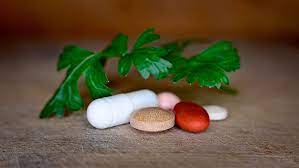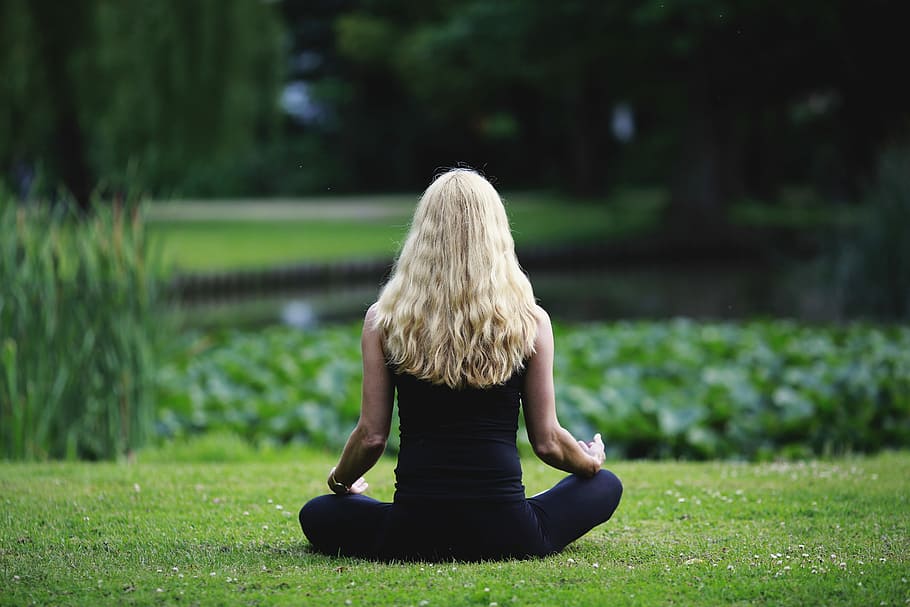Post-traumatic stress disorder (PTSD) can affect individuals who have experienced or witnessed a traumatic event. While there are various medical treatments and therapies available for PTSD, some individuals may prefer natural remedies to manage their symptoms. In this blog, we will discuss some of the natural remedies that may be helpful for individuals with PTSD. Natural remedies for PTSD work best in conjunction with professional medical treatment and therapy, rather than as a substitute.
Contents
What Is PTSD?
 PTSD (Post-Traumatic Stress Disorder) is a mental health condition that can occur in individuals who have experienced or witnessed a traumatic event. Symptoms may include flashbacks, nightmares, anxiety, and avoidance of triggers that remind the person of the trauma. These symptoms can significantly impact a person’s daily life and ability to function. Treatment options may include therapy, medication, and self-care techniques.
PTSD (Post-Traumatic Stress Disorder) is a mental health condition that can occur in individuals who have experienced or witnessed a traumatic event. Symptoms may include flashbacks, nightmares, anxiety, and avoidance of triggers that remind the person of the trauma. These symptoms can significantly impact a person’s daily life and ability to function. Treatment options may include therapy, medication, and self-care techniques.
Can PTSD Be Treated Naturally?
While there is no single natural remedy for PTSD, there are several natural and holistic approaches that may be helpful in managing symptoms. These may include exercise, relaxation techniques, mindfulness practices, healthy diet, and herbal supplements such as chamomile or lavender. It’s important to note that these approaches should not be used as a substitute for professional medical treatment and therapy, but rather as a complementary method to support overall mental health and well-being.
Best Natural Remedies For PTSD
While there is no single natural remedy for PTSD, there are several natural and holistic approaches that may be helpful in managing symptoms. Here are some examples:
Exercise
Exercise has been shown to be effective in reducing symptoms of PTSD. Physical activity can increase the production of endorphins. These are natural chemicals in the brain that help reduce pain and promote feelings of well-being. Additionally, exercise can improve sleep quality and reduce feelings of anxiety and depression. Examples of exercise that may be helpful include jogging, walking, swimming, and strength training.
Relaxation techniques
Relaxation techniques include deep breathing, progressive muscle relaxation, and visualization. Theses can help reduce feelings of tension and anxiety. These techniques can be practiced at home or with the help of a therapist. It is believed that deep breathing increases the levels of oxygen in the body. This helps our brain to stay active and body feels relaxed.
Mindfulness practices
Mindfulness-based therapies can help individuals with PTSD become more aware of their thoughts and feelings. Through this, they can learn to manage them in a healthy way. Mindfulness practices involve paying attention to the present moment without judgment. These practices include Yoga, meditation and Deep thinking.
Healthy diet
 A diet rich in whole foods can support overall physical and mental health. Eating a variety of fruits, vegetables, lean protein, and whole grains is good for health. It can help regulate blood sugar levels, improve digestion, and support the immune system. Avoiding processed and sugary foods can help reduce inflammation in the body, which is associated with many mental health conditions.
A diet rich in whole foods can support overall physical and mental health. Eating a variety of fruits, vegetables, lean protein, and whole grains is good for health. It can help regulate blood sugar levels, improve digestion, and support the immune system. Avoiding processed and sugary foods can help reduce inflammation in the body, which is associated with many mental health conditions.
Massage therapy
Massage therapy involves the manipulation of muscles and soft tissues to promote relaxation and reduce muscle tension. It may also help reduce symptoms of anxiety and depression. A study published in the Journal of Traumatic Stress found that massage therapy can help reduce symptoms of PTSD, such as hyperarousal and avoidance.
Aromatherapy
Aromatherapy involves the use of essential oils to promote relaxation and reduce symptoms of anxiety and depression. Lavender, chamomile, and ylang-ylang are a few essential oils that may be helpful for individuals with PTSD. A study published in the Journal of Clinical Nursing found that lavender essential oil can help reduce symptoms of anxiety and improve sleep quality in individuals with PTSD.
Herbal supplements
 Certain herbs, such as chamomile, lavender, and valerian root, may have a calming effect on the nervous system. These help in reducing symptoms of anxiety and insomnia. Herbal supplements for stress and anxiety are in use since centuries. However, it’s important to speak with a healthcare professional before taking any herbal supplements. This is because some supplements may interact with medications or have side effects.
Certain herbs, such as chamomile, lavender, and valerian root, may have a calming effect on the nervous system. These help in reducing symptoms of anxiety and insomnia. Herbal supplements for stress and anxiety are in use since centuries. However, it’s important to speak with a healthcare professional before taking any herbal supplements. This is because some supplements may interact with medications or have side effects.
Acupuncture
Acupuncture is a traditional Chinese medicine practice that has been used for thousands of years. It involves the insertion of thin needles into specific points on the body to stimulate the flow of energy or “Qi”. Acupuncture has been shown to be effective in reducing symptoms of anxiety, depression, and stress. It may be helpful for individuals with PTSD as well. Some studies have suggested that acupuncture can help reduce symptoms of PTSD, such as insomnia and hyperarousal.
Art therapy
Art therapy involves the use of art materials and creative expression to explore thoughts and feelings. It may help in relaxing the mind and diverting attention away from the triggers of trauma. There are many art forms like doodling, mandala art, abstract art, sketching and much more. These provide a satisfying feeling to the individual. Art therapy can help reduce symptoms of PTSD, such as hyperarousal and avoidance.
Pet therapy
 Pet therapy involves interacting with animals to promote relaxation and reduce symptoms of anxiety and depression. It may be helpful in reduce feelings of social isolation and increase feelings of connection and support. Pet therapy can provides individuals with new hope, love and desire to live. Mostly dogs are considered as the best for this approach as they are very faithful. Other pets may include cats, birds, fish, horse etc.
Pet therapy involves interacting with animals to promote relaxation and reduce symptoms of anxiety and depression. It may be helpful in reduce feelings of social isolation and increase feelings of connection and support. Pet therapy can provides individuals with new hope, love and desire to live. Mostly dogs are considered as the best for this approach as they are very faithful. Other pets may include cats, birds, fish, horse etc.
Benefits Of Natural Treatment
There are several potential benefits of natural remedies for PTSD, including:
- Fewer side effects: Natural remedies, such as herbs, supplements, and other non-pharmaceutical treatments, may have fewer side effects than prescription medications. This can be particularly beneficial for individuals who are sensitive to medication or who experience unwanted side effects from traditional treatments.
- Cost-effectiveness: Natural remedies may be more affordable than prescription medications or traditional therapy. For example, practicing yoga or meditation can be done for free or at a low cost, and herbs and supplements may be less expensive than prescription medications.
- Complementary approach: Natural remedies can be used as a complementary approach to traditional medical treatments and therapy. This means that they can be used in addition to, rather than instead of, other treatments, to support overall mental health and well-being.
- Holistic approach: Many natural remedies focus on holistic health and well-being, which means they address the physical, mental, and emotional aspects of an individual’s health. This can be particularly beneficial for individuals with PTSD, who may experience a range of symptoms that impact their overall well-being.
- Empowerment: Using natural remedies can empower individuals to take an active role in their own mental health and well-being. This can help them feel more in control of their symptoms and improve their overall quality of life.
Conclusion
In conclusion, natural remedies such as exercise, meditation, and herbal supplements can be helpful for managing symptoms of PTSD. However, it’s important to remember that these remedies should be used in conjunction with professional medical treatment and therapy, rather than as a substitute. While natural remedies can be effective, seeking help from a mental health professional is crucial for the proper diagnosis and treatment of PTSD. If you or someone you know is experiencing symptoms of PTSD, seek help from a healthcare professional.
For more information, please contact MantraCare. PTSD or Post-Traumatic Stress Disorder is a mental health condition that affects people who have experienced or witnessed a traumatic event. If you have any queries regarding Online PTSD Counseling experienced therapists at MantraCare can help: Book a trial PTSD therapy session


